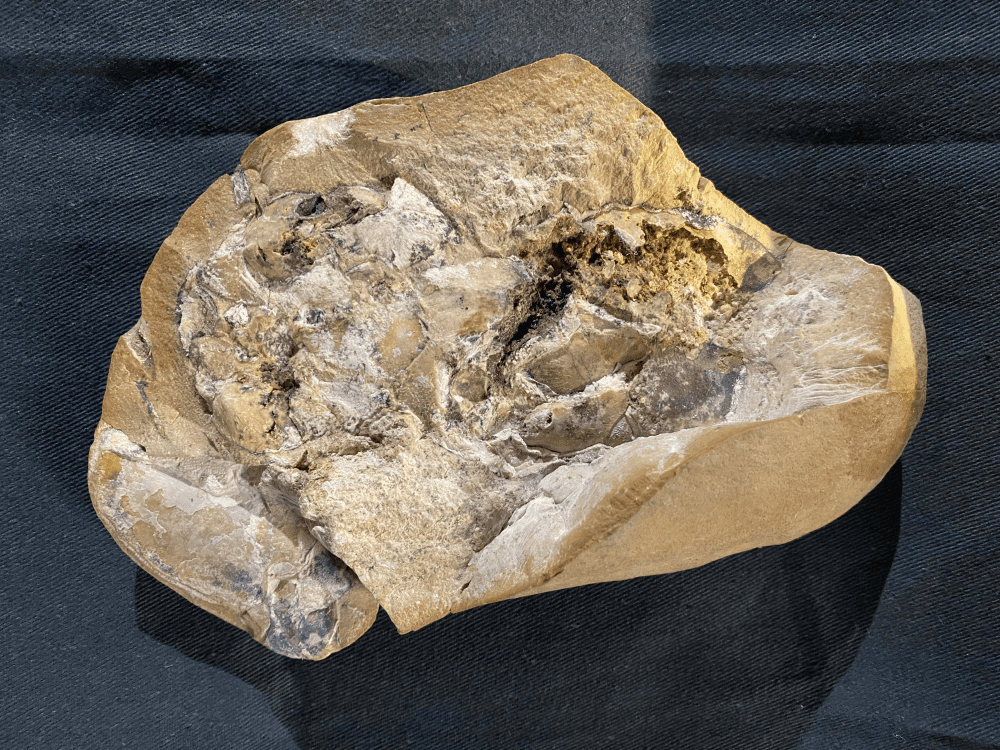The oldest heart known to science has been discovered in the remains of an ancient, jawed fish, along with a stomach, intestine, and liver to boot. The 380 million-year-old fish organ smashes previous records by a comfortable 250 million years and is shedding light on the evolution of even human bodies.
It comes from an extinct class of armored fishes, arthrodires, which were swimming about around between 419.2 to 358.9 million years ago. Despite its ancient origins, the discovery of a selection of its organs has shown that its body anatomy wasn’t that dissimilar to sharks alive today, revealing the ancient origins of their evolution.
“Evolution is often thought of as a series of small steps, but these ancient fossils suggest there was a larger leap between jawless and jawed vertebrates,” said Professor Kate Trinajstic, lead researcher from Curtin’s School of Molecular and Life Sciences and the Western Australian Museum, in a statement.
“These fish literally have their hearts in their mouths and under their gills – just like sharks today.”
The specimen is not only remarkable in its age but also that it was preserved in its 3D form, something which the researchers didn’t become completely aware of until they were at the scanning stage.
“The way we make these discoveries is by using scanning – we used synchrotron and neutron scanning – and it’s not until you’re actually going through the scan data, slice by slice, that you realise what you have,” Trinajstic told IFLScience.
“I can remember we were all crowded around the computer and recognised that we had a heart – and we really couldn’t believe it. We were so excited – it was one of those great moments where we just knew we had something so significant and so special. As a palaeontologist who has studied fossils for more than 20 years, I can’t tell you how truly amazed I was to find a 3D and beautifully preserved heart and other organs in this ancient fossil.”

The Gogo fish fossil where the 380 million-year-old, 3D preserved heart was discovered by researchers. Pictured at the WA Museum. Image credit: Curtin University
The remarkably preserved heart contains two chambers with the smaller sitting on the top and has surprised researchers for being so advanced in such an early vertebrate. It brings extra academic value in coming complete with a stomach, intestine, and liver which has shown that their anatomy was not so far removed from our own.
“We have discovered the oldest three-dimensionally preserved heart from a jawed fish, which sheds new light on the evolution of our own bodies,” continued Trinajstic. “This incredible discovery unlocks secrets about our 380-million-year-old ancestors.”
As for what’s next, Trinajstic hopes there’s more fossil offal on the horizon.
“We will keep searching – I’d love to be able to find a fossilised brain,” she said.
The study was published in the journal Science.
Source Link: Discovery Of Oldest Fossil Heart Puts Organ At 380 Million Years Old